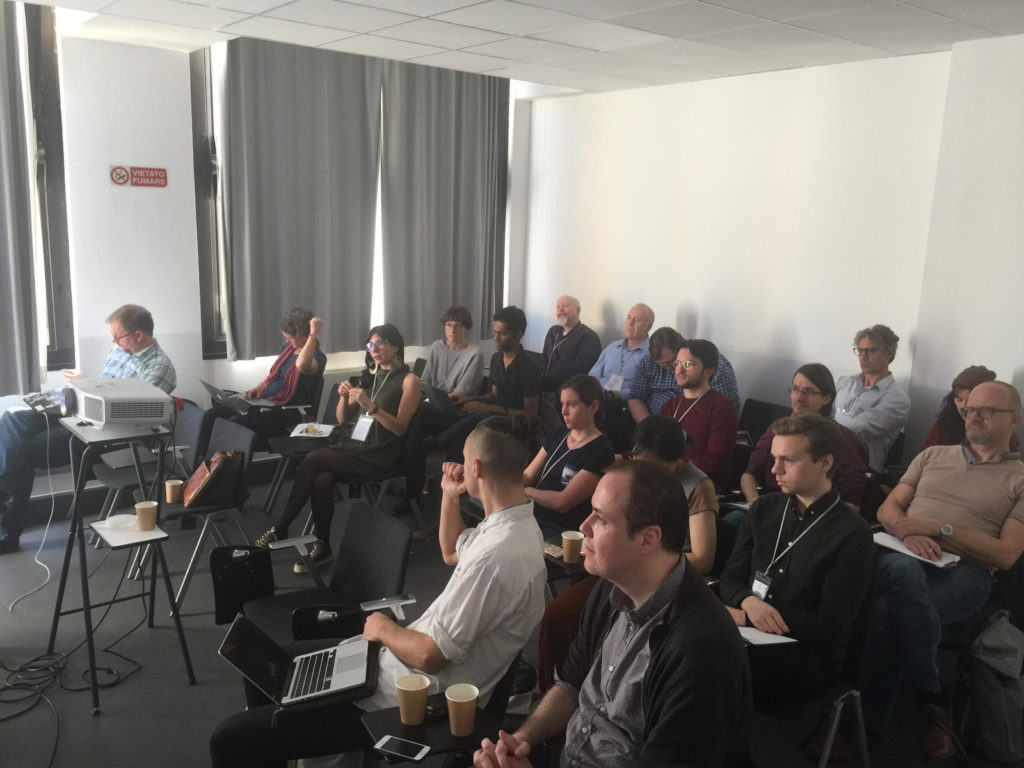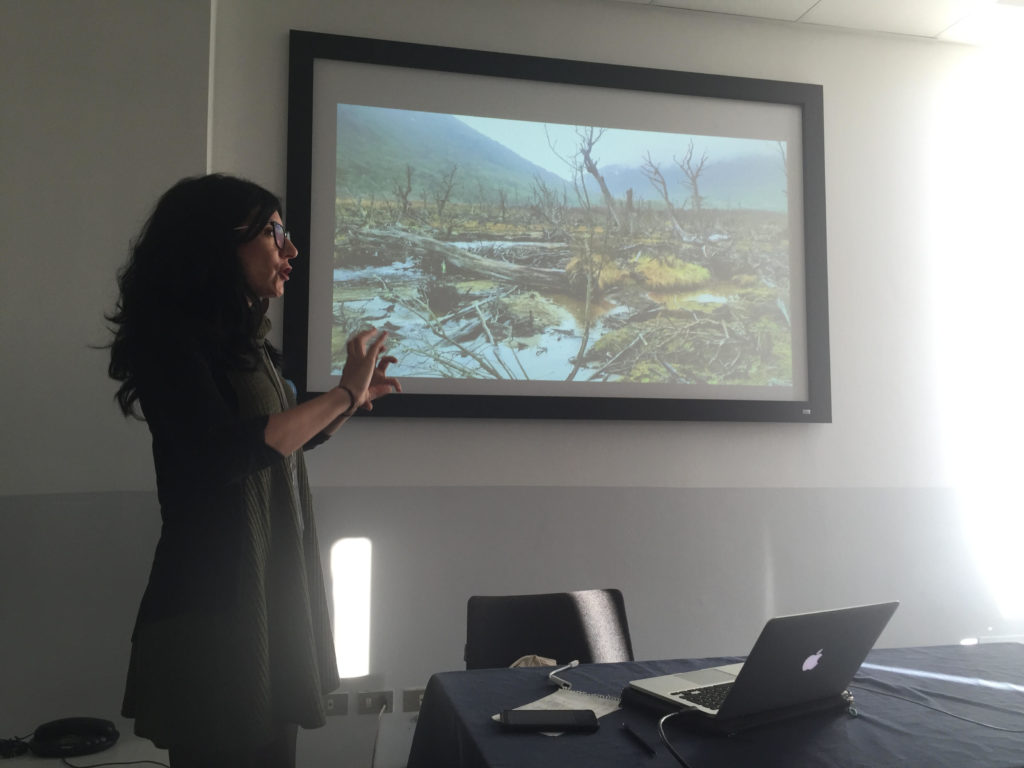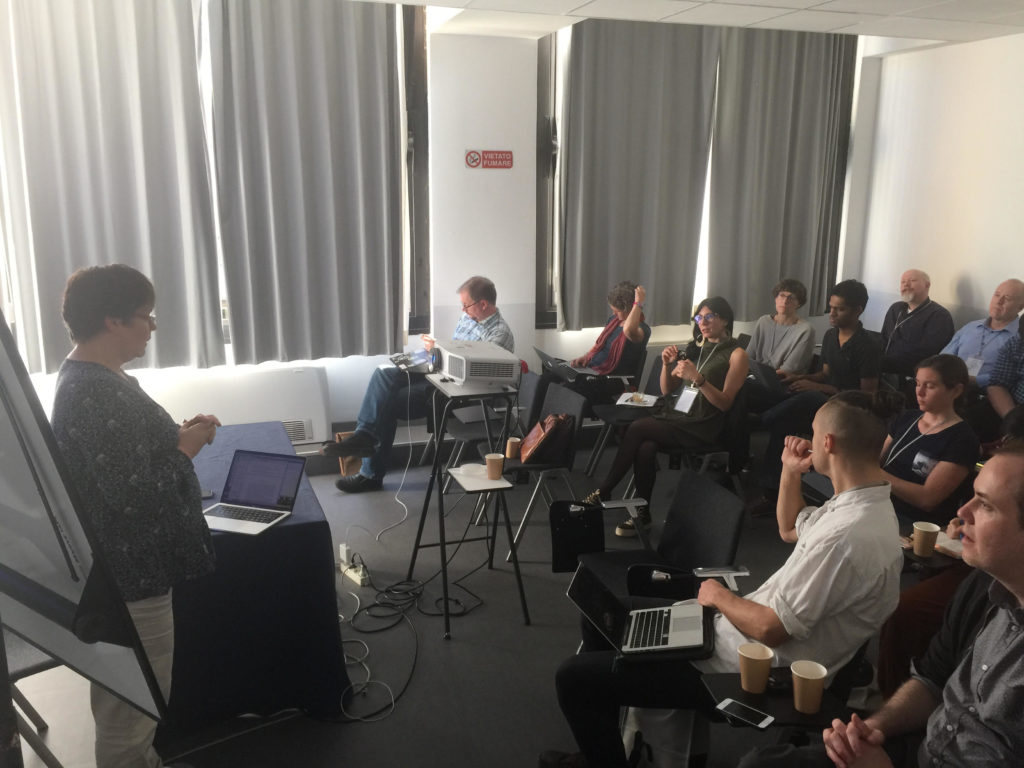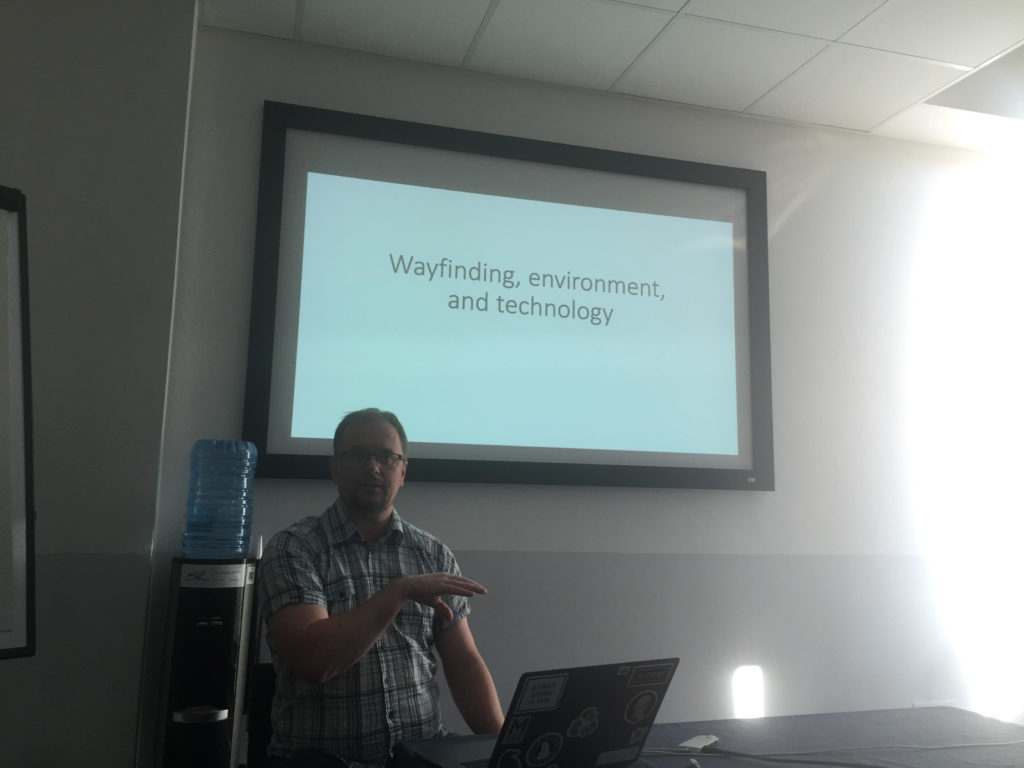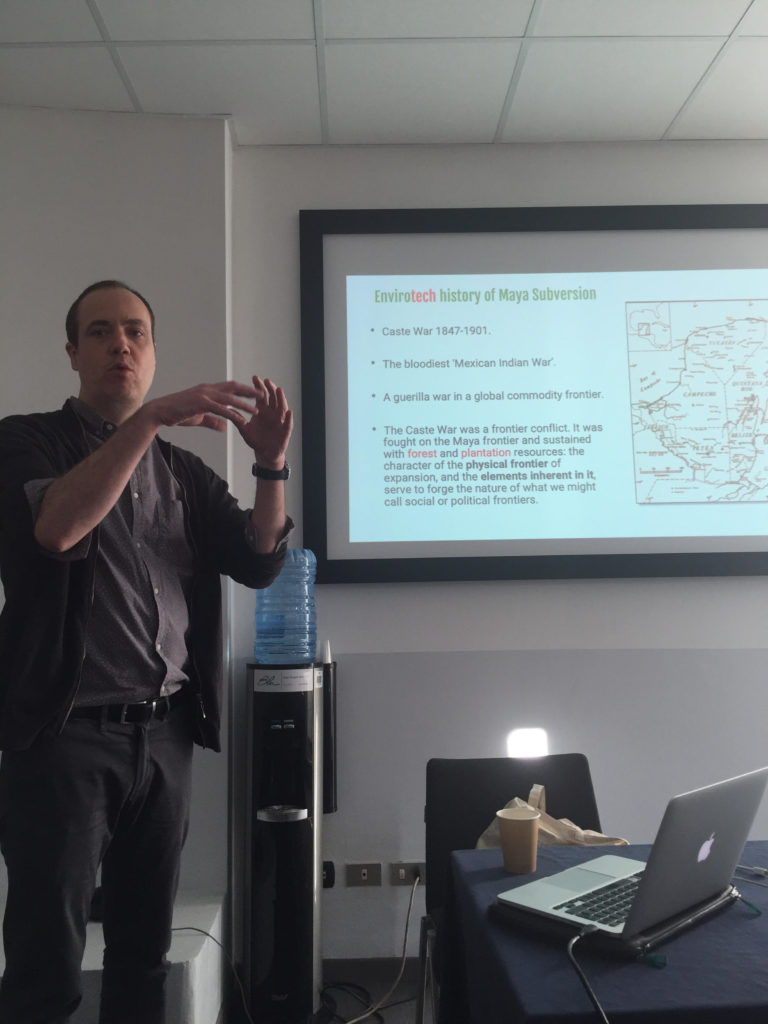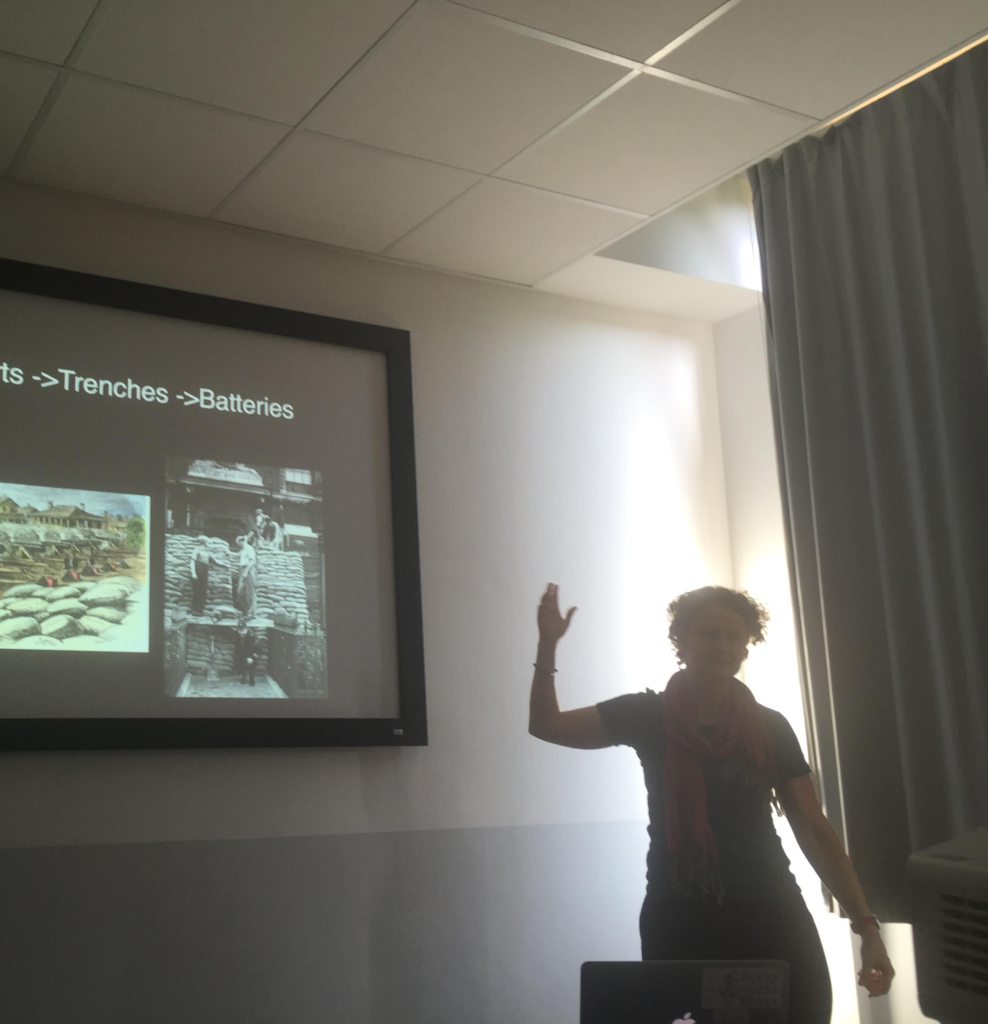The selection committee for the Joel Tarr Envirotech Article Prize is pleased to announce this year’s winner:
Bill Rankin, “The Accuracy Trap: The Values and Meaning of Algorithmic Mapping, from Mineral Extraction to Climate Change,” Environment and History (published online August 23, 2020), https://doi.org/10.3197/096734020X15900760737275.
How are environmental maps created, and what do they mean? Bill Rankin’s compelling article focuses on a fundamental but easily overlooked component of environmental mapping: the underlying algorithm. Weaving together insights from environmental history, visual studies, and critical cartography, Rankin traces the development and spread of now-ubiquitous mapping algorithms from their Cold War origins in the fields of mineral extraction (in postcolonial Africa) and military weather forecasting (in the USSR). Although their use was limited at first, such algorithms sparked intense philosophical disagreement among specialists over the goals of environmental visualization – between what Rankin calls accuracy and realism. However, epistemological tensions around the purpose of visualization have largely been forgotten as advances in computing made algorithms more accessible to non-specialists. In an increasing retreat from human subjectivity, mapping has become a technique of data-processing, hollowing out the meaning of accuracy. By probing the limits and possibilities of accuracy in environmental mapping, Rankin offers a welcome reminder of the contingent and contested nature of visual representation, and a model for linking the histories of environment and technology to questions of epistemology and visual culture.
Tarr Prize Selection Committee:
Camille Cole, University of Cambridge
David Fedman, University of California-Irvine
Aristotle Tympas, University of Athens

